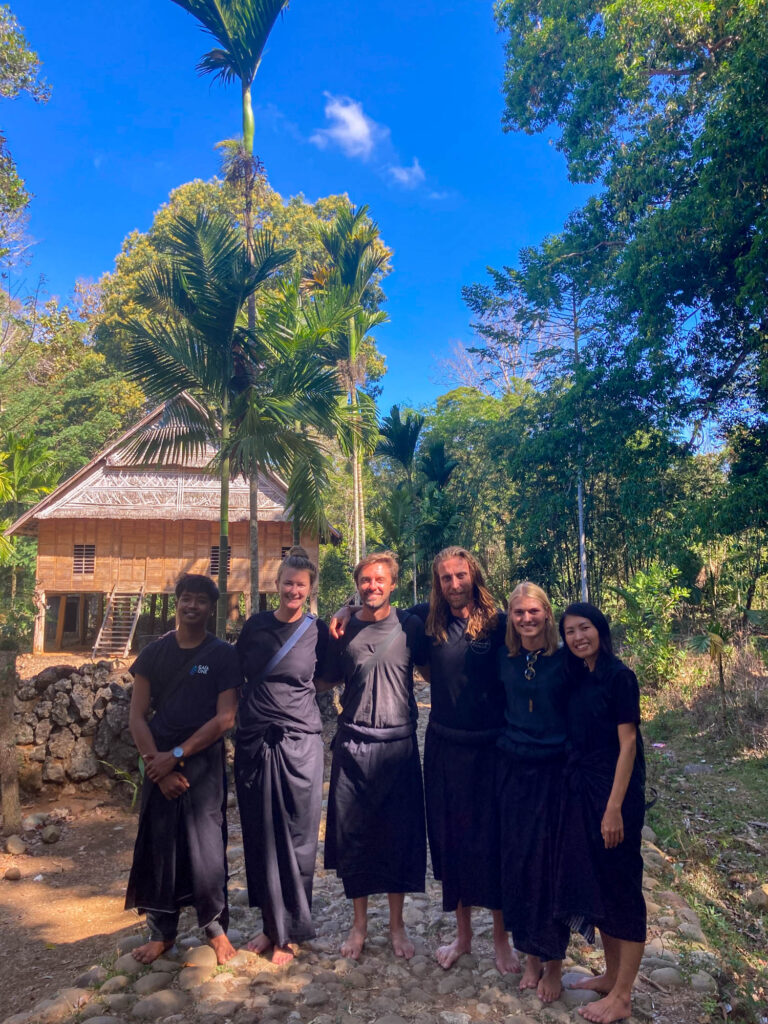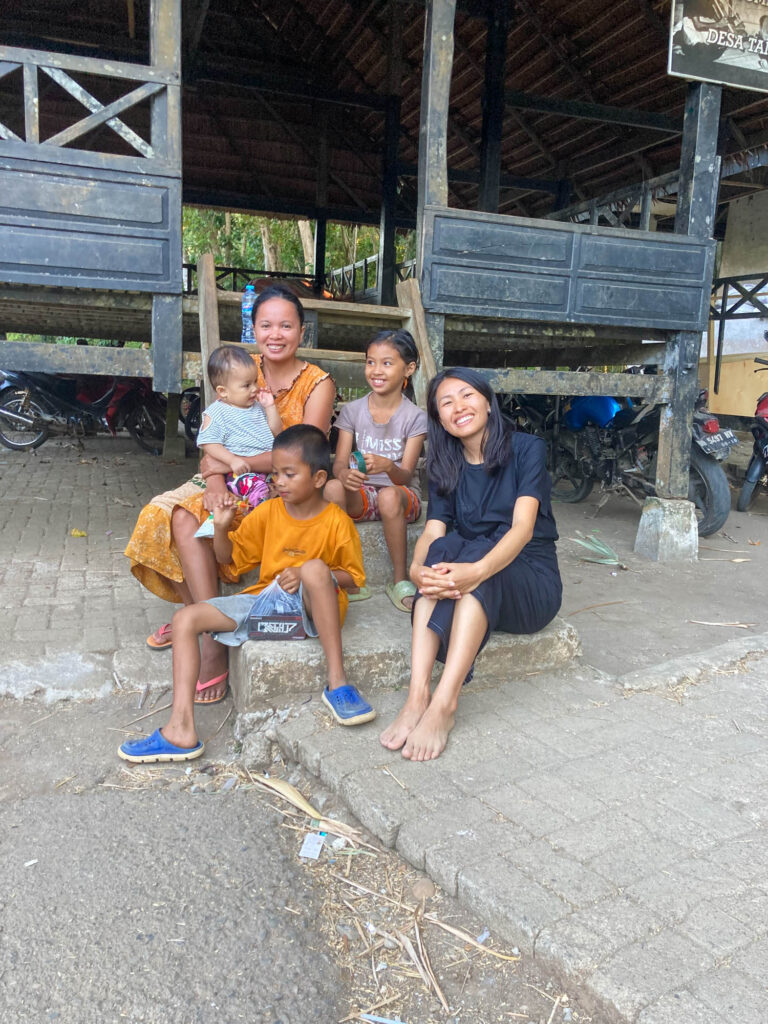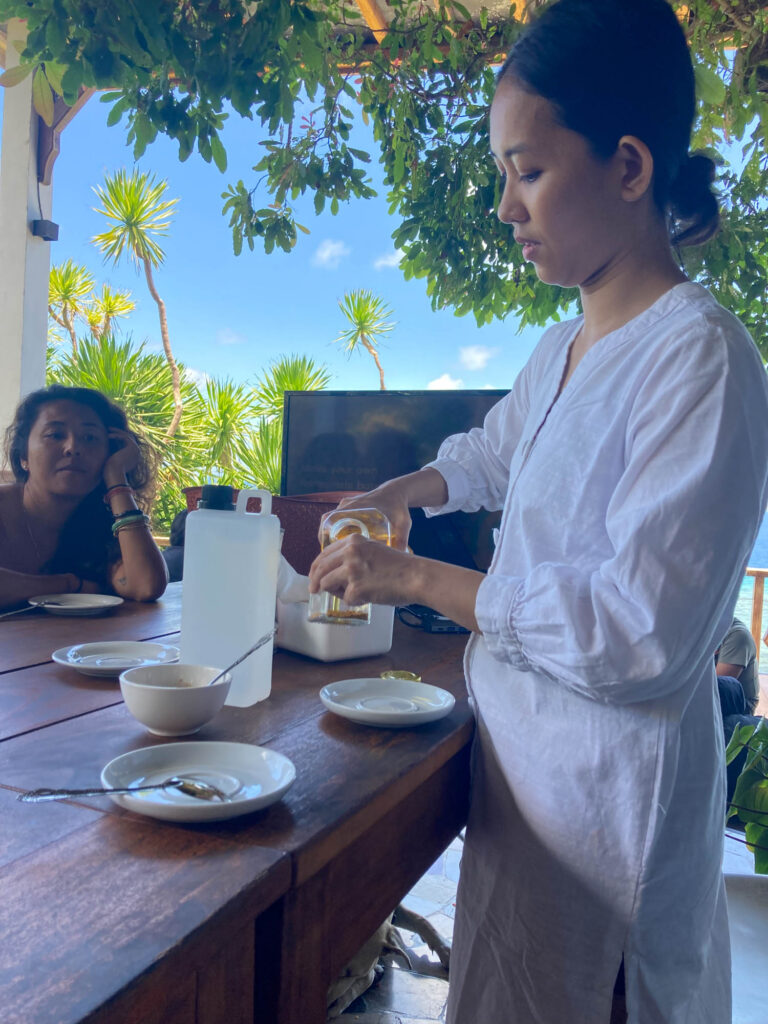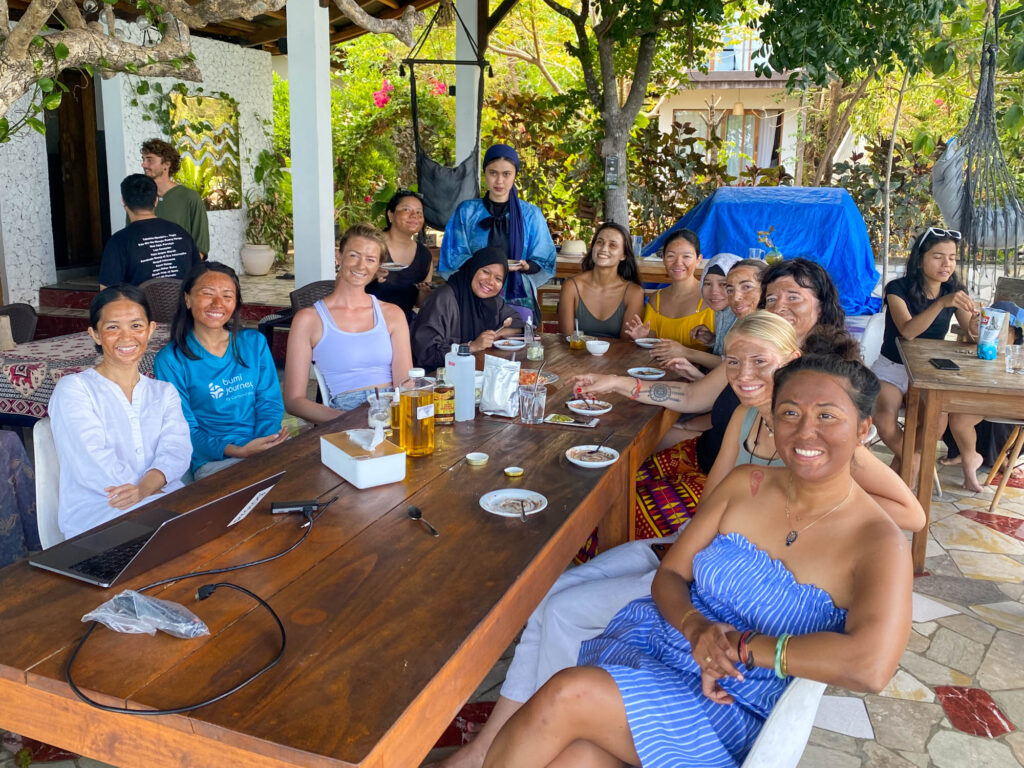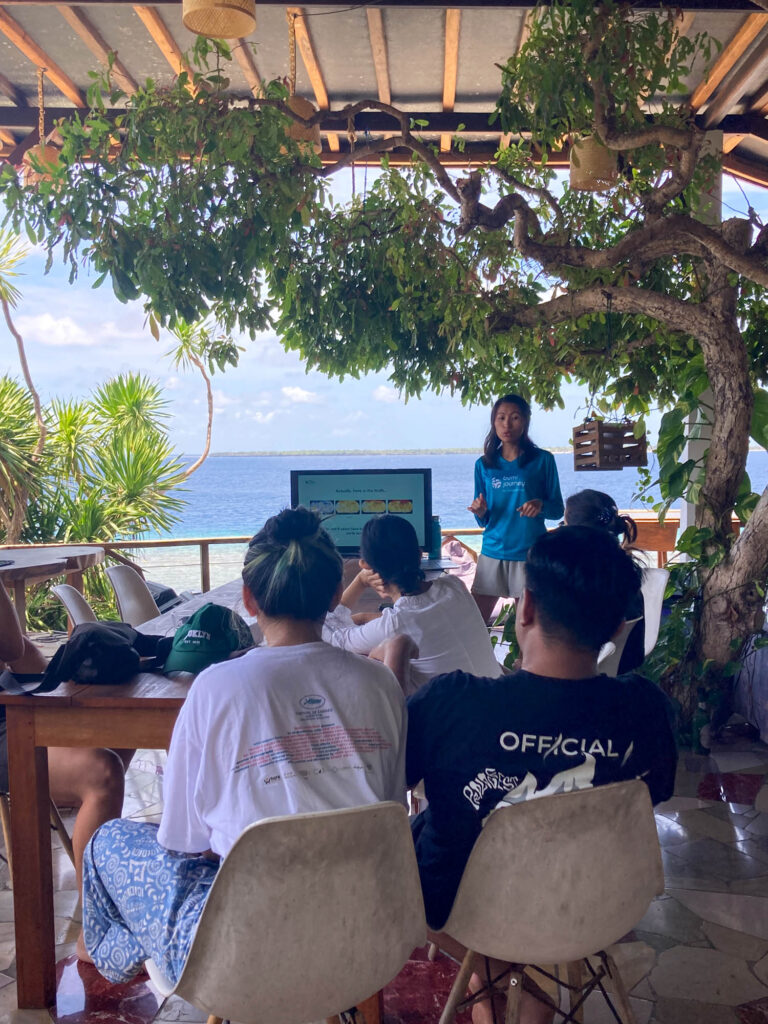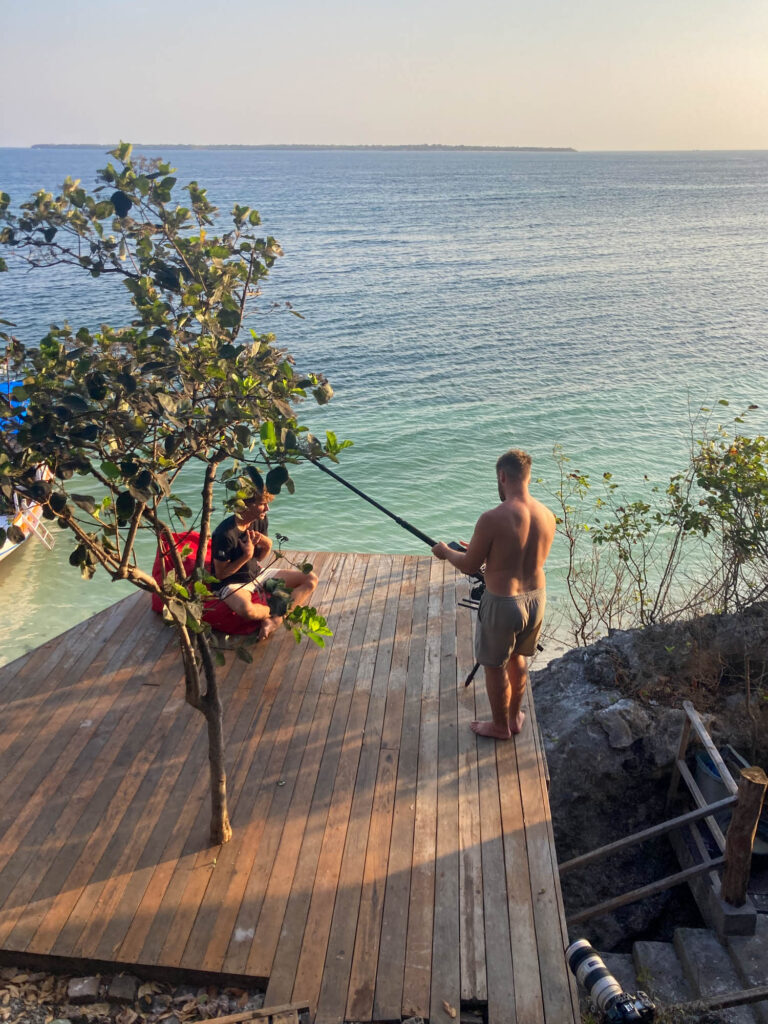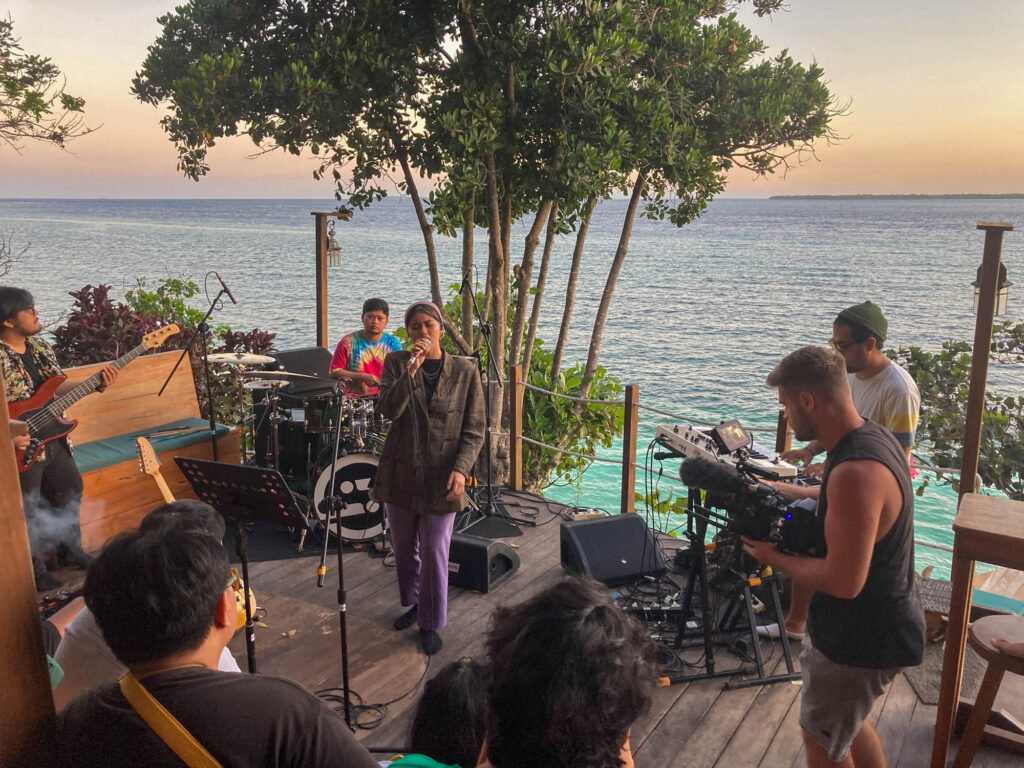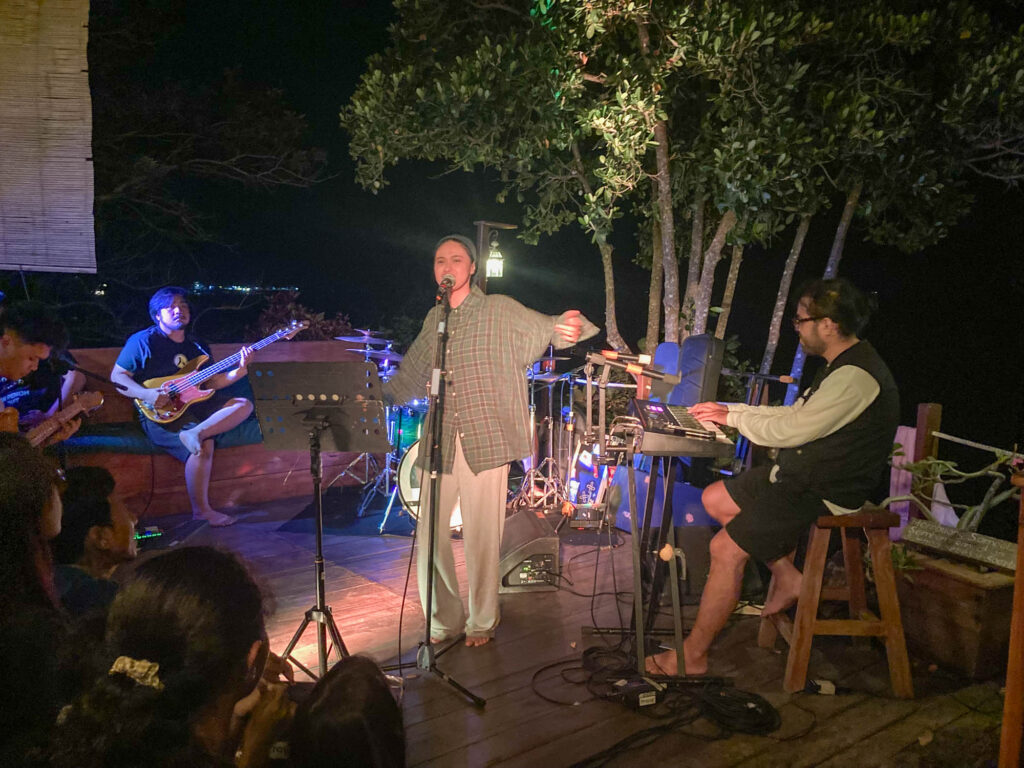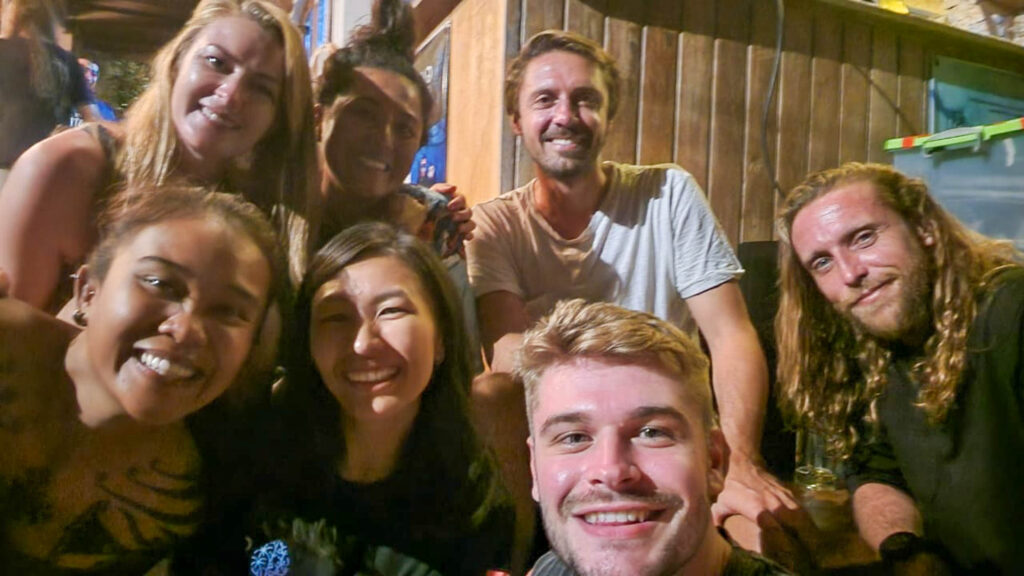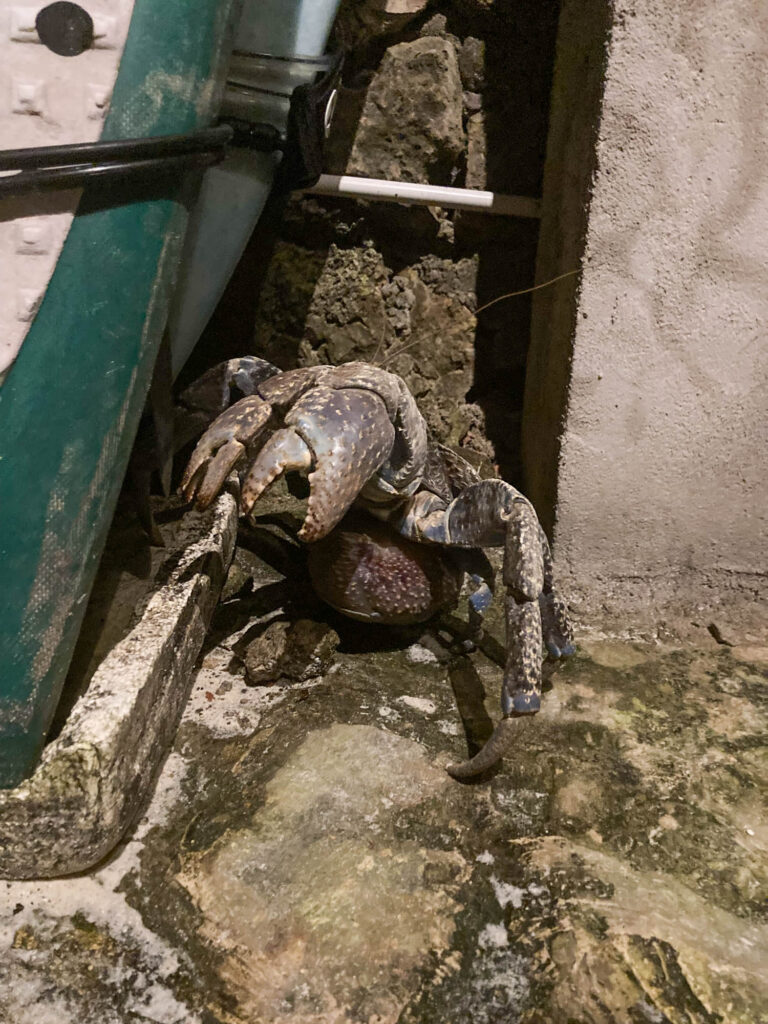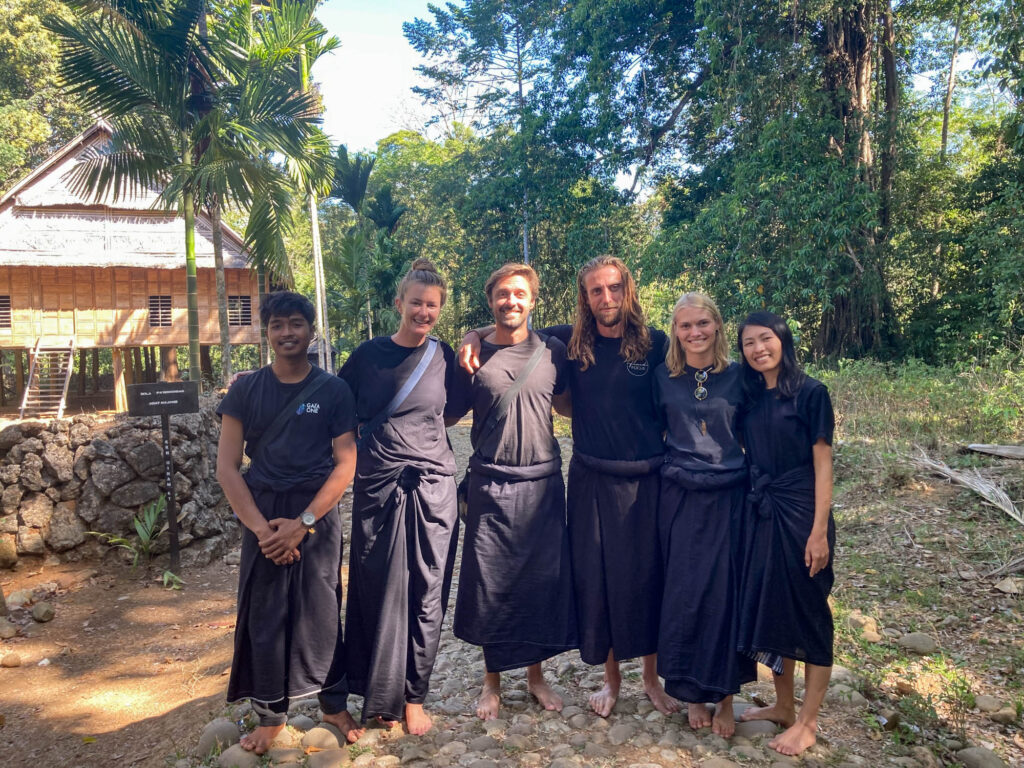I spent my first week in Bira, Indonesia, participating in the 1-week freediving retreat and enjoyed a mixture of diving, yoga, and breathwork. After the week was over, most of my new friends I made during the course headed back to their homes and I remained at Tevana House Reef with a few others who were sticking around for the weekend festivities. Suddenly, the resort was packed with musicians and even a film crew.
Tevana House Reef was hosting its second annual event called Sounds for the Ocean, where musicians from the main city of Makassar come and play a concert to raise awareness about reef restoration and overall green practices. To give some background, Tevana House Reef was started by a Malaysian woman named Nori. Several years ago she and her family came scuba diving in Bira and loved it, deciding to buy some cheap land for sale. Flash forward to a few years later, Nori found herself burnt out, working in Kuala Lumpur as a lawyer. She decided to quit her job and develop the family property in Bira into an eco-resort, creating Tevana House Reef, incorporating all kinds of green features like a wastewater garden that utilizes treated sewage for irrigation.
As Tevana became an established resort, they added on a diving operation to serve their guests and eventually started GaiaOne Restoration, using the proceeds from the diving to fund coral planting efforts. During COVID, they took advantage of the slow tourism and hired local boys to pick up trash on the beach, 6 days a week. It’s amazing to see the before and after pictures of the beach, and tourists constantly comment on the lack of refuse compared to other nearby beaches.
It was inspiring to see what Nori’s vision has accomplished so far, and the Sounds for the Ocean event was just a catalyst for further change. She even hired a videographer to come and document the weekend festivities and tell the story, thereby increasing the education and impact. As the musicians began filling the common spaces with their equipment, I decided to take a little trip with the remaining friends from the freediving course.
Jessica, an Indonesian woman from Java, spearheaded organizing a day trip to a traditional village named Tana Toa, meaning the oldest land in the world. The village inhabitants are called the Konjo people and are known to practice occultism and animalistic worship. I didn’t have much prior knowledge or context other than being told to wear all black because wearing colors of any kind is forbidden.
The 6 of us drove a couple of hours to the entrance of the village where we were greeted by a local man who handed us black sarongs to continue covering up. My black leggings were still too scandalous. We also weren’t allowed to wear shoes and, once we were appropriately dressed, the local man pointed us down a cobblestone path and indicated we weren’t allowed to interact with anyone until we talked to the chief first, to pay respects. Also, no pictures and technology of any kind are forbidden.
We walked along this cobblestone path for, what seemed like, forever. The small stones were sharp and quite painful to stand on. Eventually, we began seeing more and more traditional houses, elevated on stilts above the ground. We found the chief’s house and he welcomed us in, motioning us to sit on the floor. Luckily Jessica and Sul (one of the local guys from GaiaOne) were able to translate as we tried to understand their way of life.
The chief explained they prefer to live a traditional life without any modern technology but they have a Rumspringa-like period where young people are allowed to leave and come back before committing to the lifestyle. They seemed to have a lot of rules about everything, punishable by steep fines. Everyone is required to wear black, no modern conveniences, no shoes, no outsiders are allowed overnight, and respect (especially to the Chief) is of utmost importance. The chief carries a lot of responsibility and is responsible for good weather, fruitful harvests, and predicting the future.
The chief seemed to pick and choose which questions he would entertain and provided ambiguous, long-winded explanations. Overall, I walked away from the experience without learning much about the culture or reasons behind their practices, other than everything leads back to the respect and wishes of the chief. We spent the rest of the afternoon, walking around in our black outfits, observing the architecture, people, and animals who looked a bit malnourished. A majority of the locals we passed were wearing normal clothes with colors.
The following day, event festivities were underway and we spent the morning at the neighboring resort, learning about organic skincare and how to minimize carbon emissions when traveling. After making some clay masks, my new friend Jessica took the stage and presented in Bahasa about two companies she had started. One is for eco-travel called Bumi Journey, and the other company that partners with corporations to offset carbon emissions through mangrove rehabilitation and coral restoration is called Carbon Ethics. Seeing Jessica’s emotion and dedication to making a positive change in the world was truly inspiring.
Later that day, as the band was setting up at Teavana, I began reflecting on the impact and change both Nori and Jessica were creating, and both were still in their 30s. To be honest, I began feeling down about my life. What was I doing to create a better world? I’m just some 34-year-old, unemployed for almost 3 years, trying to live for cheap and do some diving in Indonesia, with no idea what to do with my life or where to go next.
As the sun began to set, the first musical act came on and the small venue seemed to fill quickly. The music was a mix of different tastes but all equally excellent. After grabbing a drink, I found a spot next to some girls who were doing a dive master course at a neighboring dive center and began chatting between sets. I told them a little about my story and two years of sailing followed by this last year of diving and both were in awe. They seemed to share the same envy and inspiration about me that I had about Jessica and Nori. It made me feel a little better and I guess it goes to show that everything is relevant.
The next day, it was time to start making some positive changes in the ocean and we kicked off the coral restoration course with GaiaOne.
